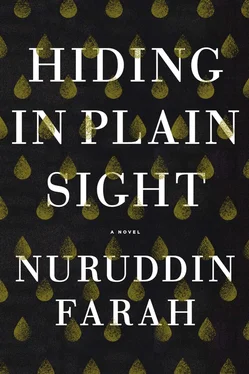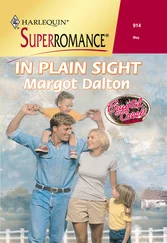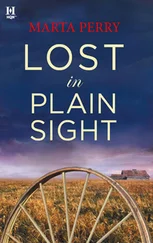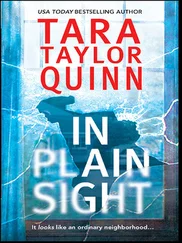Bella says nothing, wondering to herself why Gunilla thinks this will be of interest to her. But, as a Swede and a UN bureaucrat, she is just being thorough. Or at least Bella hopes that is the reason.
“And you know what I also found out today?”
“What?”
Gunilla is pleased with herself. “The penny has finally dropped. Valerie has no legal right to the children or to Aar’s estate. One: because their marriage in England was out of community of property. Two: by abandoning the family, Valerie did not share a conjugal bed with Aar for several years, which is one way of defining matrimony. Three: you and the children, as per the will in the files, are the only heirs — and her name appears nowhere in it. Valerie knows it too. So this is her new iron in the fire, this trust fund. Apparently, she has charged the Ugandan with the task of getting it up and running.”
“Need we bother ourselves with any of this?” asks Bella.
“Not really,” says Gunilla. “Unless out of generosity you wish to involve her in a trust fund for the children — and I see no reason why — or you allow her as co-custodian, which I doubt is wise, given what you’ve told me so far. This is what I think personally.”
At the entrance to the mall, there is a police checkpoint. Gunilla’s vehicle is subjected to a thorough inspection by several plainclothesmen and some armed men in army uniform. When at last they park the car and enter the supermarket, it is getting near closing time. They divide Bella’s list, and Gunilla goes to get produce and drinks, while Bella gets everything else. Bella gets to the checkout counter in twenty minutes, as planned. Gunilla arrives a few minutes later.
“I know,” says Bella, “that it is never easy to shop on behalf of someone you do not know well. And we have the additional burden of shopping for two teenagers whose habits neither of us knows well either.”
As they drive away, Bella feels triumphant, as if she has accomplished a great feat. Gunilla says, “Having no children of my own, I can imagine how daunting it is to have this new responsibility.”
“Believe me, I’ve gone shopping with them when they were younger,” Bella says, “and without them was easier! At least when Valerie was around. Later, Aar set stern terms with them before they so much as entered a shop. Children are easy when they know where the boundaries are.”
“Have you checked in with them at Fatima and Mahdi’s?” Gunilla asks.
“I am working on the assumption that if there are calls to be made then they should be the ones making them,” Bella says. “As a child, I discouraged my parents from meeting my playmates, believing they would embarrass me. So unless I hear otherwise, I won’t call. They’ll call me when they’re ready to come home.”
“They are lovely children,” Gunilla says.
“I hope you’ll get to meet them,” Bella says.
“I have met them twice,” says Gunilla. “The first time when I went camping with them and Aar.”
Bella had forgotten. “I’m sorry,” she says. “Of course you did. Forgive me for having forgotten. Maybe we’ll do that again,” she adds softly. “I mean, camp.”
“I’d like that very much,” says Gunilla.
Bella feels that if the difference between formality and familiarity is made obvious by a speaker’s use of tu or vous in French or tu or Lei in Italian, then she and Gunilla have now gone beyond addressing each other formally and can assume they share amity, a closeness born out of mutual trust and potential friendship.
And suddenly Bella’s imagination is flying ahead into a future with the children — one in which Gunilla reencounters the children, but not at a restaurant or on a trip, but at a proper meal in that kitchen, where no one has cooked regularly for months. Surely Aar, who had to look after his children on top of traveling a great deal and often working late into the night, had neither the energy nor the desire to entertain. Her mind races with plans to explore the country with the children and learn to love it with them and think of it as her own. She will organize camping trips, visits to places of interest in the suburbs of Nairobi. She’ll encourage them to improve their Swahili and think of themselves as citizens of Kenya.
Her thoughts come back to the present as the car comes to a stop at the gate. The guard waves them in, and they park and bring their purchases into the house, sharing the intimate mundane task of putting them away in the fridge and pantry.
When they are finished, Bella offers Gunilla a drink. Compared to many Swedes Bella has known — and even compared to Valerie or Padmini — Gunilla is a modest drinker. It takes her a whole hour to finish her one glass of red wine. “I’ve learned from Aar to enjoy the pleasures of life and delight in the mercies that life has afforded us, always remembering that while we have plenty millions of others have nothing,” she says. “So what’s the hurry? Take it easy. Life is in no rush, so why rush?”
Bella recognizes her brother through and through in this sentiment. “How true!” she says, finding herself once again near tears.
“Since I met Aar,” Gunilla continues, “I no longer drink hard liquor, and I no longer take even wine when I am alone; I do that only in company and only after work. This modest drinking is rather uncommon among Nordic expatriates, you might have noticed,” she says with a smile. “Those among the UN staff who have seen me in Aar’s company say, ‘What next?’”
“What do they mean, ‘What next?’”
“They are wondering if the next time we meet, I’ll be wearing the hijab,” Gunilla says. “I tell them, ‘Don’t be daft,’ because they are daft. After all, Aar was a thoroughly secular man, cosmopolitan in his temperament, very modern in his thinking, soft-spoken and unassumingly humble.”
Now it is Gunilla’s turn to tear up. She rummages in her handbag for a tissue but finds none. Bella looks around, frustrated at how difficult it is to find even ordinary things in an unfamiliar house, especially one in which teenagers live. Gunilla says, “Pardon me,” and she is gone for a few minutes. When she returns, she is carrying a large packet of tissues.
“And here is something for you, Bella, dear,” she says.
At first Bella thinks Gunilla means the tissues. And then she sees that she is holding out an intricately wrapped package firmly sealed with tape. Bella receives it with both hands.
“What is it? What’s in it?” she asks, thrilled and surprised.
“It is a gift from me to you,” says Gunilla. “Open it.”
“I love gifts,” says Bella.
She is so eager to see what it is that she tugs at the tape impatiently. But the tape is stubborn, and she is about to resort to her teeth when Gunilla has the presence of mind to get up and fetch a pair of scissors, whose mysterious location she clearly knows well.
Bella gazes down at the gift, remembering a line from a poem by Apollinaire: “La joie venait toujours après la peine.” It’s a collection of photographs: Aar with friends at a party; Aar with Gunilla and the children camping; Aar in Nepal, India, Bangladesh, and Burma; Aar with Gunilla in Istanbul. Bella has never seen any of them before. And they are good, very good, every single one of them.
“They’re Aar’s,” says Gunilla. “I’ve put them together for you and the children.”
“Grazie, carissima Gunilla!”
She receives the present with out-and-out joy, appreciative of the time and thought Gunilla has put into arranging them in an album and giving it to her and the children.
Bella embraces Gunilla, who says suddenly, “That reminds me. We had a phone call earlier today at the office from an elderly Italian lady. She said her name was Marcella and that she’d been ringing every UN office in Nairobi trying to reach someone who knew you.”
Читать дальше












